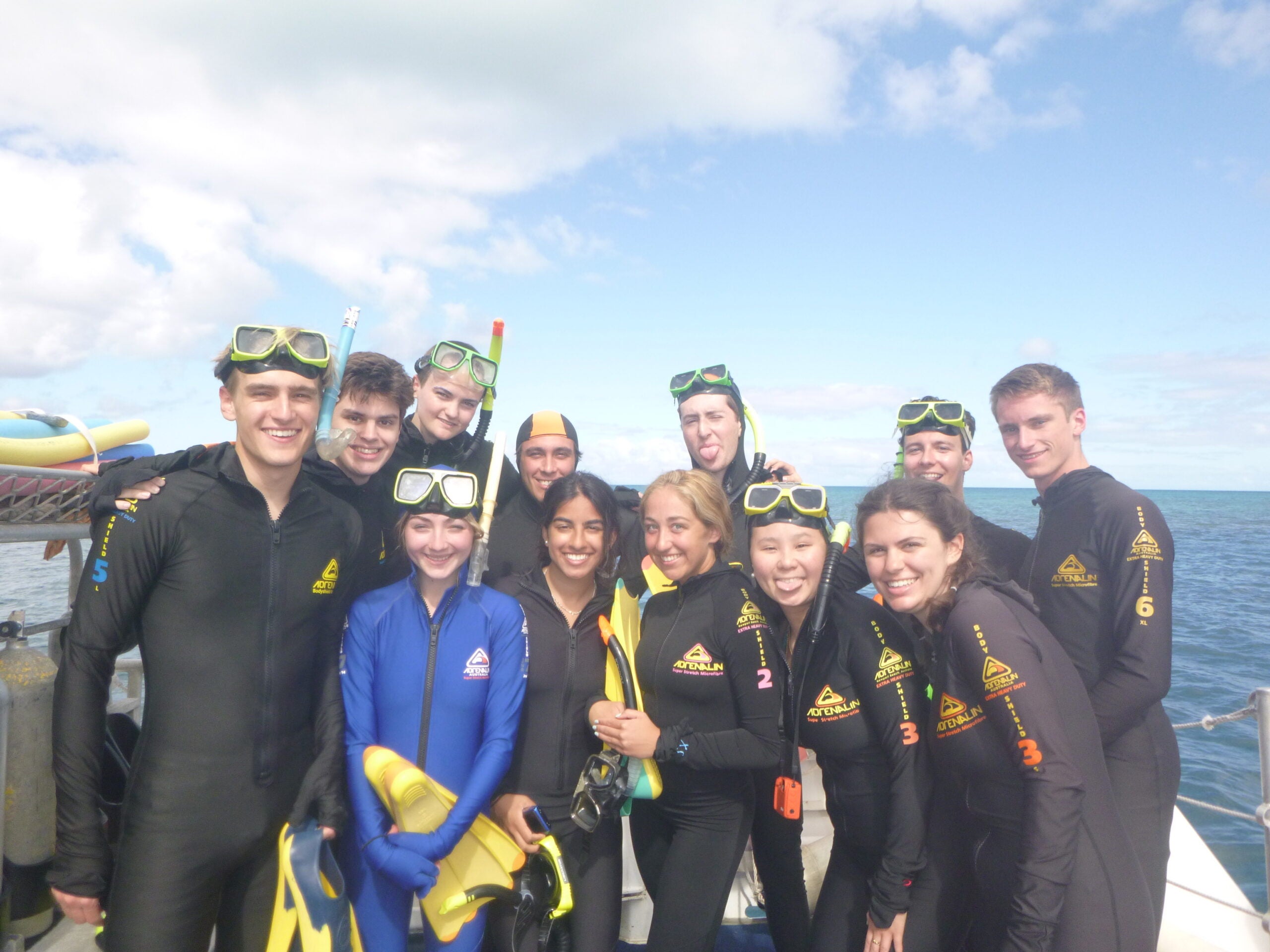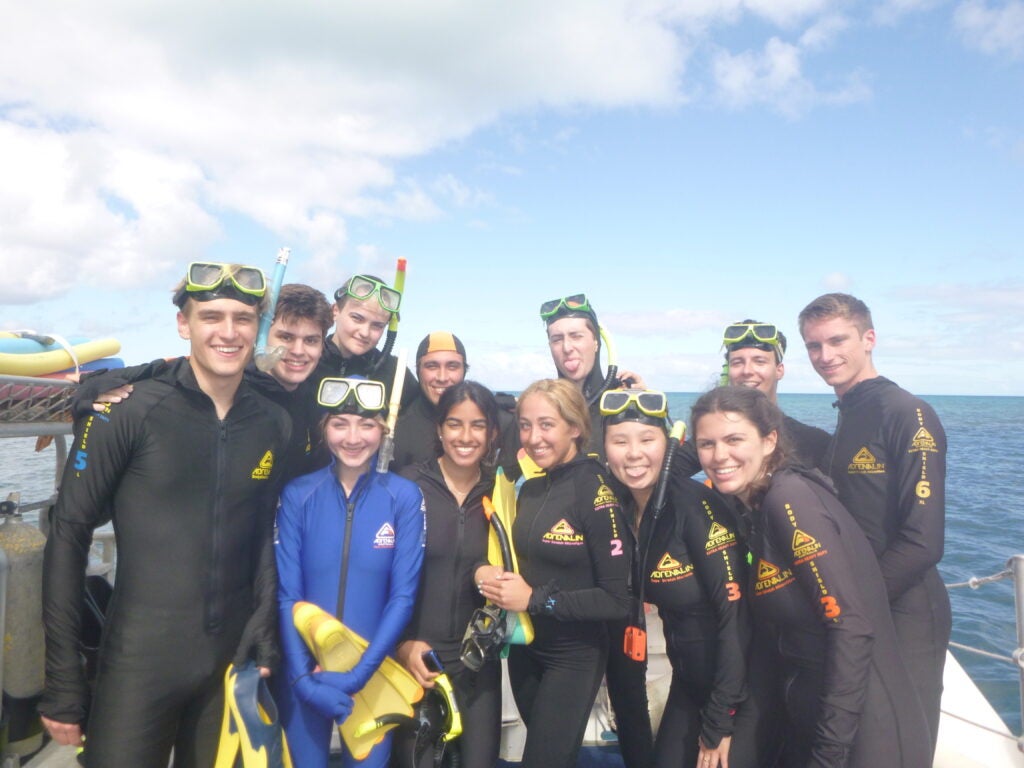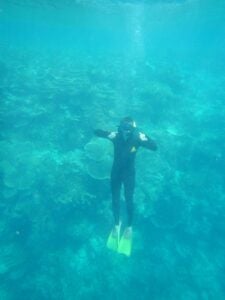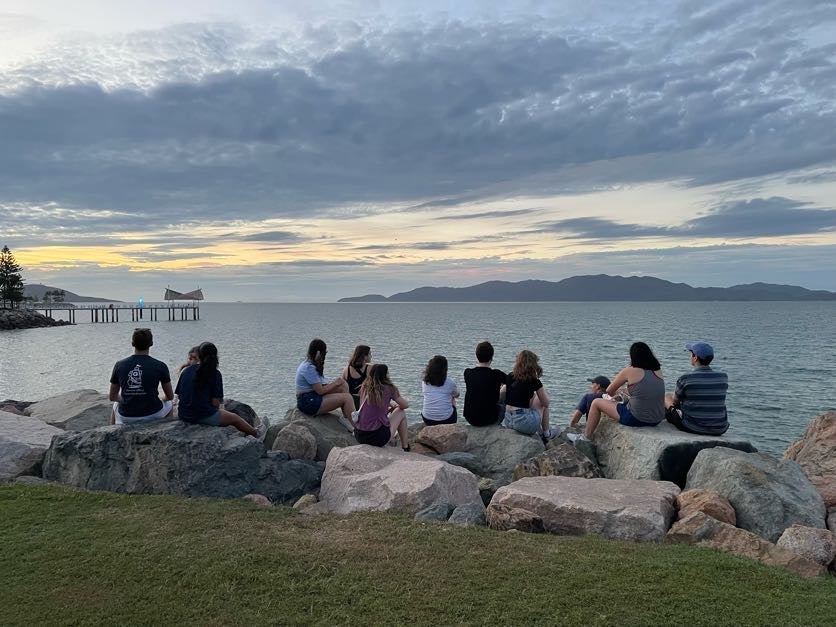Program Spotlight: Georgetown on the Great Barrier Reef

Posted in News Story | Tagged australia, Oceania, summer programs

This summer, Georgetown’s newest summer study abroad program sent students to Townsville, Australia, a coastal city in Queensland directly adjacent to the central section of the Great Barrier Reef. The program — titled “Politics of Marine Conservation” — brought a cohort of twelve students into contact with policymakers, conservationists, and other stakeholders in the battle for the conservation of the barrier reef.
The three-week program drew in a wide variety of students from different schools and majors, from those in the hard sciences, to international affairs, and even health management. Building a multi-faceted approach to understanding the status and future of Reef conservation, Professor Alan Tidwell (Center for Australia, New Zealand and Pacific Studies) put together coursework rich in guest speakers, site visits, and field research. Students were also responsible for keeping up with journal entries in which they reflected on their learning experiences and shifting assumptions about both conservation and Australian policymaking.
In one such journal entry, student Camber Vincent describes how the US can benefit from the depolarized political quality of Australian environmental discourse: “Every speaker from the [Great Barrier Reef Marine Park Authority], while individually wanting nothing more than to save the reef, has been incredibly objective and balanced all sides of the conversation both in their work and in their educational materials. Furthermore, the depoliticization of the bureaucracy makes it much more effective for governments to enact policy after being elected that properly represents the voice of the people.”

Understanding contemporary Australian politics went hand-in-hand with learning the history of the indigenous population of the region and how infrastructure has been built up around land rights and trade policy. Students visited Mungalla Station, an area of land still managed by its traditional landowners, to learn about the Nywaigi People and the wetland conservation project being undertaken in the area. Because the area is also now billed as a tourist attraction and campgrounds, this prompted an important debate about the intertwined futures of tourism and sustainability in this region.
Students also took trips to Magnetic Island, about 5 miles off the coast of Townsville, from where they were able to launch their field study of the reef and experience the restoration of coastal ecosystems firsthand over many days. Hands-on learning experience about the way research is conducted in this area exposed students to citizen science, with some engaging with Eye on the Reef, a monitoring program that anyone visiting the area can contribute to. Another excursion brought students to stay in eco-friendly cabins in Queensland’s beautiful Hidden Valley, which was an exciting way to break up their time near or in the water.
Professor Tidwell notes that much of what students have learned about current conservation policy in this region can be applied to environmental policymaking in other areas, and to the relationship between research and politics in general. As these students pursue their various courses of studies, whether they focus on scientific research, global environmental policy, or other topics in the political sphere, he hopes they take with them a more nuanced understanding of the elaborate interpolation of science, tourism, and public policy.

To hear more about Georgetown students engaging with the Great Barrier Reef, also check out this blog post from a student in 2020.
